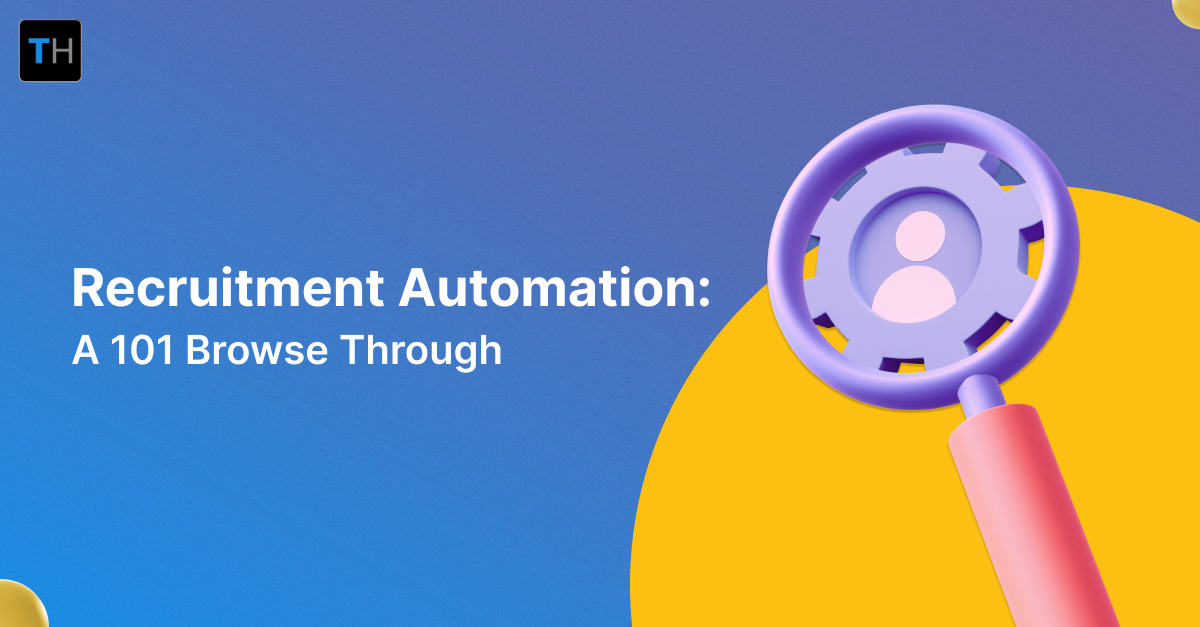“People are a company’s greatest asset”
This saying holds for every aspect of a company’s success. Organizations can make use of talent intelligence data to assess every inch of their talent strategies. Access to well-defined talent research will give them a competitive edge in the market. Talent data comes in handy in every aspect starting from sourcing to hiring, onboarding, and retaining the best talent. This can help HR make better talent acquisition decisions and contribute to the company’s ultimate success strategies.
Introduction
Talent Intelligence as the name suggests is the process of being able to gather intelligence about the talent pool in one’s own market. It includes discovering data that can be used to analyze the market’s trends and what strategies work best for the company. This study does not only require you to research your own company’s best measures of talent but also of your competitors’. Talent Intelligence will provide you with a better understanding of the available talent in the market and help you make informed decisions regarding the same.
The change in HR trends and technologies during the Covid-19 pandemic has also changed the landscape of talent intelligence in today’s world. Companies around the world are working towards achieving new and advanced digital technologies every day to make sure their companies are at the forefront of the work culture evolution. HR teams have been highly involved in this evolution acting as the commander of the changes in work culture.
Why is Talent Intelligence important?
70% of a company’s talent and potential is dependent on its employees’ skills and experience (Taleo Research, 2010).
Very often, companies and their HR departments fail to acknowledge the importance of the talents acquired by their employees. This calls in for the spread of the importance of Talent Intelligence. The study of Talent Intelligence would make leaders understand how to make the best use of talent already residing inside their organizations and also the talent available out there in the market.
It has become very important for HR departments to have access to useful talent data in order to make informed decisions about talent management and where to invest their time in.
What is talent data?
Taleo conducted a Talent Intelligence survey that evaluated the most vital talent metrics in the countries UK, France, USA, and Australia. Despite the difference in regions, five of the most important talent metrics that were listed among the top 10 most important metrics came out to be of the same type. They include:
- Defined business goals: 94% of respondents
- Goals aligned with business plans: 92% of respondents
- Performance plans aligned to goals: 84% of respondents
- Competency/skills gap analysis: 82% of respondents
- Employee engagement levels: 81% of respondents
For companies to have access to valuable talent data or information, they need to first examine if the talent metrics they are acquiring provide them with useful and reliable information. Companies usually assess unimportant data and use those as measures to create company strategies without having access to the data that is being considered as “very important” to their executives. This is another reason why the study of Talent Intelligence has become so vital.
How can organizations benefit from Talent Intelligence?
5 examples of how beneficial Talent Intelligence can be for organizations:
1. A better understanding of hiring requirements
You will gain an insight into the strengths and weaknesses of your current talent pool which will help you understand which gaps to fill during hiring.
2. Internal Recruitment goes a long way
If the devised talent strategy can be fulfilled by existing employees, that’s the way to go. Internal Recruitment is one of the best ways of retaining the best talent within your organization.
3. Reduction in time-to-hire and cost-per-hire
A well-defined talent data would inform you about what exactly to look for while hiring and where to look for it. This can help you reduce a tremendous amount of time in sourcing and screening processes, thus reducing the cost of hiring.
4. Don’t let turnover rates go too high
Replacing employees can have a huge impact on your company’s expenditure. Hence, use talent data to understand where it’s going wrong, how to improve on it, and how to motivate your employees and make the best use of their talent.
5. Encourage Diversity, Equality, and Inclusion in your workplace
Talent Intelligence data would make you discover the unknown biases and inequity in payroll or promotion going on around the company. Make sure to use the talent data efficiently to correct these instances of injustice and make necessary changes in the company policies.
Making the best use of Talent Intelligence and the role of HR
The first step to making the best use of Talent Intelligence is to get it right. HRs have a huge role to play in determining what kind of talent information the company needs. A successful talent intelligence strategy involves making use of the correct metrics including recruitment and hiring metrics and incorporating rich reporting methods.
There are 3 main steps for determining a successful talent intelligence strategy:
Step 1: Grasp an understanding of the requirements of the company.
- What is your company strategy?
- What are the resources and skills required to achieve your strategic goals?
- Where does your company currently stand?
Step 2: Incorporate an analytical platform or framework to make sure your company receives the relevant information.
- Who would have access to this data?
- How do you want the data and information to be represented?
- What metrics would you like to focus on?
Step 3: Ensure regular data access and reporting
- How often would you like to receive talent reports?
- Is everybody involved in talent intelligence keeping up with the data?
- Is the data being updated on time?
The responses to the above queries would extensively help with your Talent Intelligence strategy planning and development. This is also the part where the role of HR comes in. It would be the responsibility of HR to gather the best possible responses to these questions and then plan out how these responses can be used while strategy development.
The job does not end at collecting responses. One has to also ensure that regular goals are being met and each one of the three steps is being executed properly and consistently. The key to successful strategies is maintaining consistency. Here again, the HR department comes into play as they are a company’s best option to provide assurance and reliability.
What does the future look like for Talent Intelligence?
The pandemic has led to a huge shift in the work culture in most organizations around the world. Resignations, burnouts, work from home, return to work, and work-related stresses have made companies realize the value of talent management. By making use of talent management or intelligence data, HR departments can develop fair and effective company policies or make changes in the existing ones that would result in better talent acquisition practices.
The work culture right now is more unified than ever before. Hence, it has become very important to pay attention to common work-related affairs like fair screening methods during hiring, internal recruitment, upskilling processes, as well as encouraging equality, diversity, and inclusion.
The future of Talent Intelligence is highly dependent on the correct tools and methods used to obtain talent. Organizations can acquire this by executing a singular and unified data model or talent management system. This will allow HR leaders to have access to talent data as a regular part of their usual recruitment process, onboarding process, performance management processes, and while developing plans for their existing employees.
This will ensure that the candidates and employees involved with your company reach new levels of detail while appropriate talent intelligence would ensure that the top talent in your organization is retained and improve the whole employee experience during the process.
Frequently Asked Questions (FAQs)
1. What are the important features to look for in a Talent Intelligence Platform?
Some important features to look for in a Talent Intelligence platform are resume parsing techniques, reduction in screening time, reduction in time-to-hire and cost-per-hire metrics, candidate ranking abilities, automated interviewing facilities, candidate assessments, etc. Mostly, the features should revolve around AI-powered tools that make talent acquisition as efficient as it can be.
2. What is talent mapping?
Talent mapping is a part of an organization’s talent management and talent intelligence strategies. It determines the talent requirements in the company that will be required in the future through internal and external hires. Talent mapping assesses the organization’s needs and creates a vision for the company to follow while filling skill gaps and identifying talent demand.
3. How does Talent Intelligence help grow your business?
Research shows that investing in a talent intelligence strategy can boost your company’s business growth. It is more like a short-term investment that delivers long-term benefits in terms of talent. Tracking talent intelligence metrics and hiring metrics at your company will allow you to better evaluate your company’s needs, choke-points, and what is required for better growth.
4. Why are talent intelligence platforms becoming more and more popular?
Getting hold of quality talent for your company in today’s talent market can become a very tedious task. For starters, it becomes way too expensive and time-consuming. Investing in a Talent Intelligence platform is the ultimate solution for this problem. Not only does your requirement for quality talent gets solved but the process also becomes automated if you choose an AI-powered platform. It is all the way a win-win situation for companies and recruiters.















































